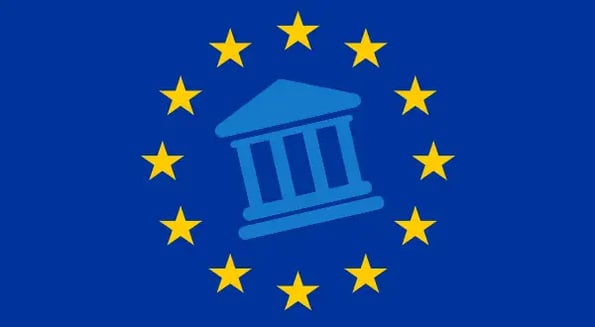Imagine your company’s Slack account.

Now, imagine that instead of using that chat app to share memes and happy hour plans with your team, you used it to share your customers’ info with your direct competitors to collude and make a massive profit.
Well, that’s exactly what traders at Barclays, Citigroup, JPMorgan Chase, MUFG Bank, and the Royal Bank of Scotland did between 2007 and 2013, teaming up to swap large amounts of currencies for major companies and manipulate foreign currency markets for their own benefit.
The European Commission made them pay
Every day, foreign exchange traders exchange billions of dollars by pitting currencies against each other, making the “forex” market one of the largest in the world.
Normally, banks are supposed to bet on currencies in isolation, to protect consumers. But in these “insider” chat rooms, traders had insider info about whether to bet for or against their own portfolios.
So, when the little cartel came to light, the European Commission fined its members a combined $1.2B for anti-competitive practices.
‘Cartel’ sounds so ominous …
We prefer how the Pablo Escobars behind these chat rooms referred to the operations — Cartel #1 went by “Three way banana split,” and cartel #2 was called “Essex Express.”
The names of the chat rooms were equally witty: One was called “Essex Express ‘n the Jimmy” because apparently everyone in the chat room lived in Essex except for, well, Jimmy — wait, what are we even talking about anymore?
The cherry on top
Traders from UBS were also involved… but the investment bank avoided a fine because it ratted out the dirty banana boys.
